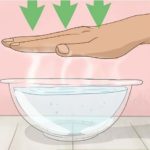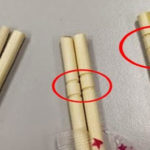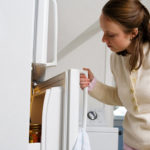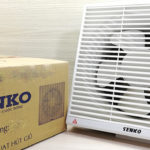Air conditioners condense moisture from the air and drain it out through a water outlet. To answer the frequently asked question, “Is it safe to drink water from the air conditioner?”, we need to consider the condensation process, water quality, and potential risks.
Air conditioners work on the principle of cooling the air by condensing moisture. When the unit is running, the refrigerant (usually a type of coolant gas) in the evaporator coil has a temperature of 10-15 degrees Celsius, which cools the passing air. When this cooled air comes into contact with the evaporator coil surface, moisture from the air condenses into small water droplets on the coil.
These droplets then fall into a drip pan below and are directed outside through a drain pipe. This is a natural phenomenon that occurs during the air conditioner’s operation.
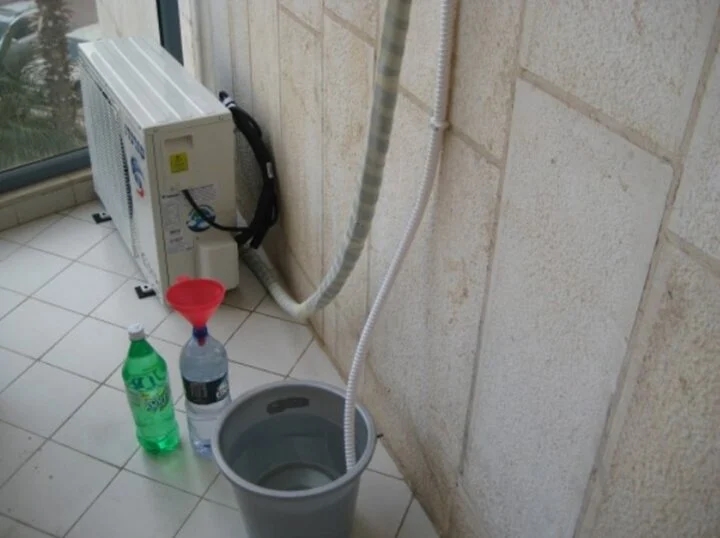
Is it safe to drink water from the air conditioner? (Image: Greenprophet)
Is it safe to drink water from the air conditioner?
Water from the air conditioner is, in essence, condensed moisture from the air, which initially can be considered pure. However, several factors can influence the quality of this water.
During operation, indoor air may contain various impurities, including dust, bacteria, mold, and chemicals from household products. When moisture condenses, these impurities can be trapped and dissolved in the water.
Additionally, over time, the evaporator coil, drain pipes, and drip pan of the air conditioner can accumulate dust, bacteria, and mold. These contaminants can mix with the condensed water, making it unsafe for consumption.
Moreover, the water from the air conditioner does not undergo any filtration or sterilization process before being drained out. Therefore, it may contain bacteria and other contaminants, posing potential health risks if ingested.
By now, you probably have your answer to the question, “Is it safe to drink water from the air conditioner?”. While the condensed water from the air conditioner may initially be considered pure, direct consumption of this water is not recommended. Drinking water from the air conditioner can pose potential health hazards due to the following reasons:
– Bacteria and Mold: The water from the air conditioner can contain bacteria and mold from the air and the unit’s internal components. These microorganisms can cause digestive issues and other health problems.
– Chemicals: Some air conditioning systems may use anti-freeze or other chemicals for maintenance and operation. These substances can mix with the condensed water and be harmful if ingested.
– Impurities and Dust: Dust and other impurities from the air and the air conditioner components can mix with the water, making it unsafe for drinking.
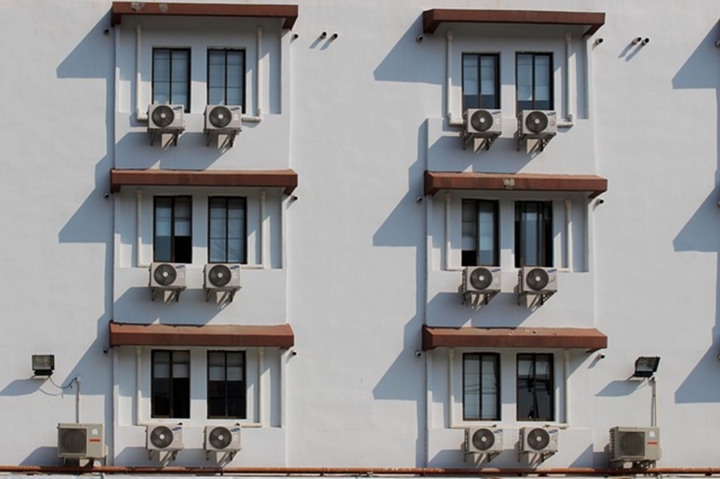
Water from the air conditioner is unsafe for drinking but can be utilized for other purposes (Image: Greenprophet)
How to Safely Use Water from the Air Conditioner
Although it is not advisable to drink water from the air conditioner, you can still utilize this water source for various purposes in your daily life, provided you follow safety measures. Here are some safe ways to use water from the air conditioner:
Gardening: Water from the air conditioner can be used to water plants, helping to conserve potable water. However, avoid using this water for fruit-bearing trees or edible crops to prevent contamination.
Household Cleaning: Using water from the air conditioner for mopping floors, washing cars, or cleaning surfaces is an effective way to reuse water and conserve resources.
Toilet Flushing: This water can be used for cleaning toilets or other areas that do not require drinking water.
Outdoor Cooling: You can use the water from the air conditioner to cool your patio or outdoor areas during hot days, providing a natural way to lower the temperature.
In conclusion, while it is not advisable to drink water directly from the air conditioner due to contamination risks and the lack of filtration, it can be utilized for various other purposes.
According to VTC news
Identifying the Cause of Refrigerator Condensation and How to Eliminate It
Are you dealing with an accumulation of condensation on the exterior and inside of your refrigerator? Dienmay GREEN is here to tell you why it's happening and how to solve the problem.
























